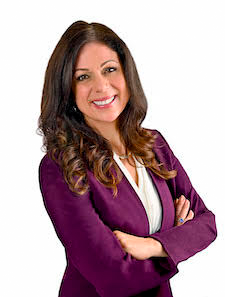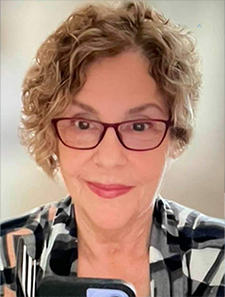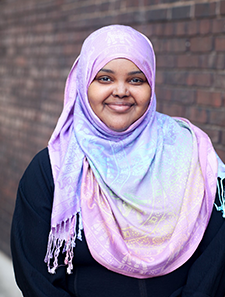COAST 2024 Virtual Systemic Conference
Register Now!
Friday, October 11, 2024 – Virtual Education Conference
Join COAST’s upcoming conference for a unique and enlightening experience with esteemed speakers. Connect with like-minded professionals and gain valuable knowledge for growth in your field. Register now to secure your spot.
See our line up of keynote presenters, and our conference agenda below!
Registration details are as follows.
- $125.00 – Non-COAST Members
- $25 – Non-COAST Students
- Free – COAST Members (As of January 01, 2024) Click here to become a member.
- All registrants (and COAST Members) will receive Conference Access instructions via email starting October 8, 2024.
- The recordings of the conference will be available shortly after the conclusion of the conference for those who register. More details to come.
Register below.
Featured Keynote Presenters
Conference Agenda
All times are in Central Time Zone. Please adjust accordingly.
Presenters:
Description:
The field of Marriage and Family Therapy has been around for quite some time and while many of the original theories and interventions might still have clinical relevance it is also important to understand how the field is changing and how to apply the tenets of Couples/Marriage and Family Therapy to the current field given new contextual considerations such as race, gender, and constantly changing sociopolitical climates.
Learning Objectives:
At the end of this presentation, participants will be able to –
- Understand the sociocultural context in which MFT was created and the context in which it currently resides.
- Experience one way of thinking about the early contributions of MFT pioneers and how they might apply today.
- Be encouraged to consider adopting a both/and perspective when it comes to reconciling our discipline’s roots
15 Minute Break.
Breakout Option #1
Presenters:
Justine Mastin, LMFT, LADC & Larisa Garski, LMFT
Workshop Title:
The Grieving Therapist: Caring for Yourself and Your Clients When It Feels Like the End of the World.
Workshop Description:
How do you practice good therapy when it’s the end of the world as we know it and no one feels fine? We can only do so if we act together. The planet is burning, friends and family are falling to cults, and we’re all living through the collective trauma of a global pandemic. Among therapists and healers, burnout is rampant; hopelessness and despair are, too. In this presentation psychotherapists Larisa Garski, LMFT, and Justine Mastin, LMFT, LADC give voice to the difficulties of therapising in today’s world and offer a grief-informed framework for taking care of yourself as you take care of others. Informed by narrative, internal family systems, fanfic, and trauma-sensitive therapy, Garski and Mastin explore what it means to be a therapist at the end of the world (or what feels like it). They break down 10 realms of grief that are critical to understand and work with today, but likely weren’t taught to you in therapy school, and invite you to engage with your own grief in community with your peers. With humor, compassion, irreverence, and more than a little whimsy, Garski and Mastin invite you to show up for yourself and your clients in your full humanity against it all.
Learning Objectives:
- Attendees will be able to identify their own grief, and how these feelings can contribute to feelings of therapist “burnout.”
- Attendees will be able to define and identify “moral injury” and how this can contribute to feelings of therapist “burnout.”
- Attendees will be able to state 3 concrete skills for their own self-care.
Breakout Option #2
Presenters:
Violeta Kadieva, Ph. D., LMFT-S & Jeremy Pierce, MA, LMFT-S, LPC-S
Workshop Title:
Multicultural Dynamics in Supervision
Workshop Description:
It has been found that multicultural competence training does not give specific outlines and detailed guidelines that would help clinicians when working through cross-cultural conflicts. Land-Closson (2017) looked at significant areas in social issues and multiculturalism, often overlooked but affecting the therapeutic relationship. This study was done with college students to explore the paradox of privilege and explain how Relational Cultural Theory (RCT) guides safe conversations about differences. In this workshop we will utilize an activity called “my multicultural self” to decrease the anxiety of providing feedback about multicultural dynamics in supervision. Cultural competence in supervision is a continuous process of development.
Learning Objectives:
- Explain how to incorporate multicultural dynamics in the supervision process.
- Apply culturally sensitive conversations in the supervision process.
- Practice “my multicultural self” activity.
This is a time to break for lunch.
Presenter:
Description:
During this workshop Dr. Gil will highlight how the use of expressive therapies (specifically art, play, and movement) can help families have an experiential sense of shifting their perceptions of each other, and perhaps understand each other in novel ways. Inviting families to play or use alternative forms of expression can bypass defenses, encourage more open communication, emotional vulnerability, and opportunities for mutually rewarding emotional connections. Several case examples will be discussed along with a brief experiential exercise.
Learning Objectives:
At the end of this presentation, participants will be able to –
- Provide a rationale for integrating play therapy with families and couples.
- List two brief and useful assessment techniques.
- List two examples of crafting playful interventions based on systemic issues.
- Name two ways of designing amplification questions for client metaphors
IMPORTANT NOTE: Dr. Gil’s Presentation will not be recorded due to the sensitivity of the clinical material in her presentation.
Breakout Option #3 –
Presenters:
Sofia Georgiadou, PhD, LMFT-S & Ashley Hicks, PhD, IMFT-S
Workshop Title:
How well C/MFT Masters students think they get prepared to apply AAMFT competencies: Findings from a nationwide survey in COAMFTE-accredited programs.
Workshop Description:
Between June and September 2023, we distributed a mixed-methods online survey that explored Marriage and Family Therapy Masters’ students’ perceptions of the degree to which their education in US-based Masters in MFT programs helped them build competency in distinct clinical skills, abilities, and behaviors. These competencies are found in two categories both of which have been extensively researched in our field: a) Common Factors, namely therapy skills that transcend therapy models and have shown to correlate with effective therapy and positive client outcomes and b) the American Association of Marriage and Family Therapy’s list of Core Competencies. Data were collected using a brief, online, descriptive, and exploratory survey with items rated on a Likert Scale and a few open-ended questions requiring a text response. Bivariate and multivariate analysis of the quantitative data and a content analysis of the qualitative data were conducted. In our presentation, we will share what US-based student participants perceived as missing in their current outcome-based MFT education that may be contributing to a dissonance between classroom learning and application in real-world clinical situations.
Learning Objectives:
- After this workshop, the attendees will be able to describe specific gaps in US Masters students’ perception of knowledge transfer from the classroom into the therapy.
- The attendees will be able to identify one way that might address these gaps in their role as systemic therapy educators
- The attendees will be able to articulate common characteristics of practicum experiences, curriculum, and training that influence student confidence in their ability to provide quality care.
Breakout Option #4 –
Presenters:
Workshop Title:
Working with African American Families
Workshop Description:
Given the historical racial trauma experienced by African Americans in the United States, engagement in mental health care systems has been complicated for this population. Inherent mistrust, cultural misattunement, lack of mental health knowledge, and misconceptions about institutionalized systems of care pose challenges when engaging African American families in therapy. To address these concerns, family therapists must understand the unique perspectives and needs of African American families, particularly those with legacies of enslavement. The purpose of this presentation is to provide attendees with the sociocultural context and clinical recommendations necessary for addressing the intergenerational transmission of trauma from histories of enslavement and discrimination. The systemic interventions to be presented intend to promote engagement and alliance-building between therapists and African American families. The presenter first provides information about the mechanisms of intergenerational transmission of trauma (5 minutes). Then, a brief historical summary of the racial traumas associated with enslavement will be discussed (5 minutes). Finally, the presenter will provide an overview of interventions for engaging with African American families that attune to a) family dynamics; b) emotional experiences; c) intergenerational processes; and d) therapist-client identity factors. Participants will be encouraged to engage in reflective prompts throughout the presentation.
Learning Objectives:
- Identify at least one mechanism central to the intergenerational transmission trauma.
- Describe at least two ways in which the racial trauma from enslavement affects African American families today.
- Describe at least two clinical interventions that promote engagement and alliance-building between therapists and African American families on African American families.
15 Minute Break.
Before the start of the final Keynote, members of the COAST Board will give a few concluding remarks.
Presenters:
Description:
This workshop will discuss recent research looking at factors that influence self-reported rates of passing the MFT licensing exams (CA and National). Factors include test anxiety, specific test factors, barriers, coping strategies, and demographics and educational background.
Learning Objectives:
At the end of this presentation, participants will be able to –
- Describe pass rate disparities in mental health licensing exams.
- Explain possible reasons for age and race disparities on licensing exam pass rates.
- Identify at least 2 strategies for reducing pass rate disparities.
Conference Sponsors
-
Conference Sponsorship
$100.00 – $1,000.00Price range: $100.00 through $1,000.00 Select options This product has multiple variants. The options may be chosen on the product page








